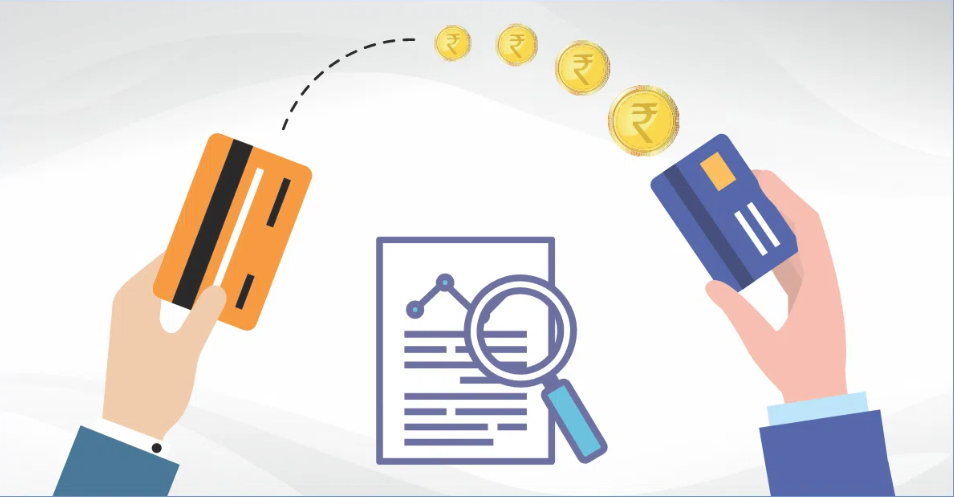Is a Balance Transfer Credit Card the Best Option for Me?

Credit card debts can be overwhelming. Dealing with them can be a challenging experience. A balance transfer credit card can answer your woes if you are dealing with substantial credit card debt, helping consolidate debt and come out of it. Credit card debt settlement helps combine all card-related debt under one umbrella, helping streamline repayment.
This guide explores the details of a balance transfer credit card and other details such as how it works, the right time to switch to one, and the best time to consider other debt reduction strategies.
What is a Balance Transfer Credit Card? How Does It Work?
A balance transfer credit card allows users to transfer the balance from their existing credit cards into a new one. Users get a 6-24 months promotional period, besides paying a low or 0% interest until the promotional period is over.
The idea is to use the promotional period offer to pay off existing credit card balances. Since the user does not pay any interest, it becomes much cheaper for them to pay off their credit card balances.
Let us assume you own two credit cards. Both lenders charge you 20% monthly interest on both cards. You owe 100 rupees on Card A and another 100 on Card B. It implies you’ll pay 40 rupees as interest on both cards monthly.
This sticky financial situation makes you apply for a balance transfer credit card. You get approved with an introductory offer of 0% APR for 12 months. In such a case, for a 12-month promotional period, the user does not have to pay any interest.
If you transfer your balances from Card A and Card B to the new card, you still owe 200 rupees. The good thing is that you do not have to pay the 40 rupees monthly interest. Your new debt will be 200 rupees. For the next 12 months, you can focus on paying off this balance without worrying about interest rates.
When Should One Switch to Balance Transfer Credit Cards?
- When Dealing with High-Interest Rates
If you are paying high-interest rates on your credit card balances, a balance transfer credit card can help you save on interest fees and pay off bills faster.
- When You Owe Multiple Credit Card Companies
If you have balances on multiple credit cards, consolidating them into a single balance transfer credit card is a good move, helping simplify your payments. This is a proven strategy for credit card debt settlement, and works for users with multiple cards.
- When You Have Large Credit Card Balances
If you have a large credit card balance, a balance transfer credit card can help you pay it off more efficiently.
- When You Only Have Short-Term Debt
A balance transfer credit card may be a good option if you have a short-term debt to pay off within the promotional period.
- When You Have a Good Credit Score
If you have a good credit score, you can qualify for a balance transfer credit card with a longer promotional period and lower interest rates.
- When You Have Cash Flow Issues
If you struggle to make monthly credit card payments, a balance transfer credit card can help you reduce your monthly payments and free up some cash flow.
- When You Are Considering Debt Settlement Solutions
If you are considering credit card debt settlement, a balance transfer credit card can be a good alternative that allows you to pay off your debts without damaging your credit score.
When Balance Transfer Is Not The Best Option
- When You Have A Low Credit Score
A poor credit score may disqualify you from becoming eligible for a balance transfer credit card.
- When You Have a High Debt-To-Income Ratio
A balance transfer credit card may not be the best option if you have a high debt-to-income ratio, which could harm your credit score. If the credit limit on the new balance transfer credit card is not high enough to cover all the existing credit card debt, it could result in a higher credit utilisation ratio, which is a key factor in determining a credit score.
If you are also unable to make timely payments on the balance transfer credit card, it could lead to more debt and cause further damage to your credit score. In this scenario, other debt settlement options, such as debt consolidation or seeking the help of a credit counsellor, may be more suitable.
- When You Are Dealing With Long-Term Debt
If you have accumulated unpayable long-term debt within the set period, a balance transfer credit card cannot help.
Conclusion
A balance transfer credit card is a financial instrument to help you pay off credit card debt more efficiently. Considering your circumstances and financial goals before switching to one is important.
Also Read: Debt Trap – What Is It and How to Avoid It?









